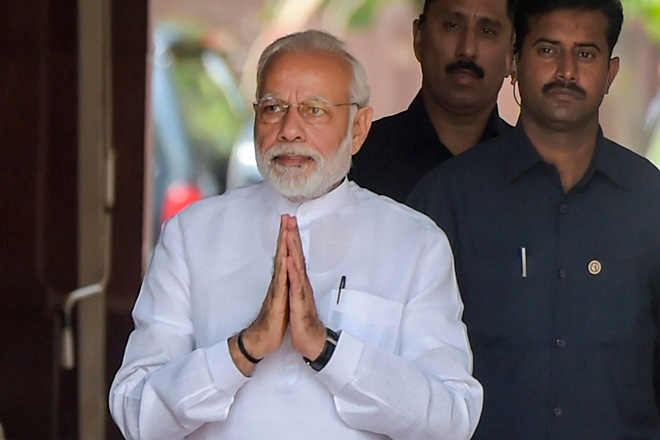No-confidence motion in Lok Sabha: The opposition was stumped on Wednesday, the day the Monsoon Session of the Parliament began, with Speaker Sumitra Mahajan accepting the no-confidence motion moved by the TDP and other parties against the Narendra Modi government. The issue had led to ruckus inside House in the previous session leading to a complete washout. The promptness shown by the government in accepting the no-confidence motion left the opposition parties red-faced who were accepting a different stand from the government’s end.
In the previous session, when the Parliament failed to transact any business, the Speaker had not accepted the no-confidence motion which was moved by the TDP to protest against the government’s failure to accord special status tag to Andhra Pradesh. This time though, the Speaker admitted the motion and fixed Friday for debate and voting on the motion. The voting will take place at 6pm.
The acceptance of the no-confidence motion is a win-win situation for the BJP, both in terms of number and time. The BJP alone has 272 MPs in the Lower House which has a strength of 533 chairs at present. After Shiv Sena, which has 18 lawmakers, announced that it will abstain from the debate and voting, the strength of the Lok Sabha stands at 515. The half-way mark is down to 258. The BJP-led NDA is appeared to smoothly sail through the trust vote. The BJD, with 19 MPs, has also walked out of the Lok Sabha, bringing down the effective strength to 496.
As per the rules, the time allocated to the parties for participating in the debate is directly proportional to their strength. The BJP, which has maximum number of MPs has been given 3 hours 30 minutes time to speak when the Lok Sabha meets to hold discussion on the no-confidence motion. On the other hand, the Congress, the main opposition party, which has just 48 MPs, has been allocated only 38 minutes time.
Though the motion was moved by the TDP, the Congress party is leading the opposition’s charge. According to reports, Congress president Rahul Gandhi will speak first, followed by Leader of Opposition Mallikarjun Kharge.
When Congress leader Jyotiradiya Scindia was asked about the allocation of time, he said that all parties should be given equal time to speak, arguing there had been no past instance when the time was allocated according to the strength.
Leader of Opposition Mallikarjun Kharge too questioned the allocation of time to parties. “Is this time sufficient for us to highlight issues of 130 crore Indians and faults of this government? Each party should get 30 minutes, but 38 minutes have been allotted to the largest opposition party. No confidence motion can’t be treated like question hour,” he said.
According to reports, in 2003 when Atal Bihari Vajpayee had faced a no-confidence motion, the debate had lasted for 23 hours. The then BJP-led NDA government had survived the trust. Before this, the Congress government headed by PV Narasimha Rao had survived no-confidence motion thrice – in July and December in 1992 and 1993. The debates in 1992 had lasted for 14 and 21 hours, respectively, whereas the debate on the no-confidence motion in 1993 went on for 19 hours.
The TDP of Chandrababu Naidu that had broken its ranks from the ruling NDA earlier this year to join the opposition camp over special status demand, has 16 MPs in the Lok Sabha. The party has been allotted 13 minutes.
The BJP sees this as an opportunity to corner the Congress over a number of issues like triple talaq, uniform civil code, and simultaneous elections among others. The BJP has been pressing for the passing the triple talaq bill in the Rajya Sabha where it lacks majority and it needs the support from the Congress and others to make it a legislation. On uniform civil code, the BJP and Congress have different views. While the BJP has been saying that the uniform civil code is as per the Constitution, the Congress is opposed to it.
The BJP is also expected to target the Congress over recent remarks made by some of its senior leaders including Ghulam Nabi Azad’s statement on Army, Saffudin Soz’s comment on Kashmir and Shashi Tharoor’s ‘Hindu-Pakistan’ remark. The Congress and opposition, on the other hand, are likely to corner the government on issues like mob lynching, rising cases of rapes, terror activities in Jammu and Kashmir, poor health of banks and jobs among others.
The BJP will also utilise this as an opportunity to propagate its schemes and programmes that it has launched in last four years and try to send a message to the people that the government is pro-poor. It also comes just ahead of the assembly polls in Chhattisgarh, Madhya Pradesh and BJP where the BJP faces anti-incumbency factor. With Narendra Modi leading the charge, it will be a surprise if a motion moved moved by the opposition turns out to be an embarrassment for itself.
